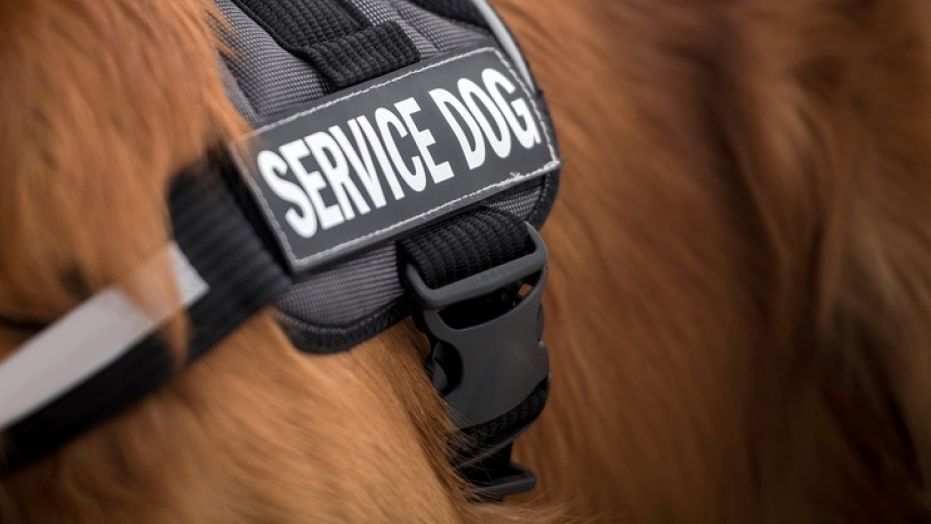(CNN/WSVN) — You see a dog enter a restaurant with a vest that says “service dog.”
How do you, or the restaurant, know if the dog is actually a trained service dog?
It’s a problem that has prompted lawmakers across the country to try to crack down on people trying to pass off their pet as a service animal.
Two years ago, Florida passed a law making the use of fake service animals a second-degree misdemeanor, punishable by a $500 fine and up to 60 days in jail, the Miami Herald reports. Now more than a dozen states are following suit. The American Humane Association estimates that there are about 20,000 legitimate service dogs in the U.S.
“Any pet owner can go online and buy a vest for a dog to pass it off as a service animal to gain access to restaurants, hotels and places of business,” Massachusetts State Rep. Kimberly Ferguson told USA Today. “Their animals aren’t trained and end up misbehaving in these public places, which gives real service dogs a bad name.”
Colleen Belanger has a service dog and she is upset people are using fake service dogs.
“They make me angry, they really do,” she said.
[protected-iframe id=”309e37b57ab1fea6a8001ccd4015cff2-110336915-112670968″ info=”//z.cdn.turner.com/cnn/van/resources/2.1/scripts/van-widgets.js” ]
The American with Disabilities Act requires all places open to the public to allow to service dogs and their owners. The act allows business operators to ask only two questions: whether the dog is required because of a disability, and what tasks the dog is trained to perform. It is illegal to request documentation for the dog or to ask the nature of the owner’s disability.
According to USA Today, there is no certification or official national registry of legitimate service dogs, which means there is no way to verify whether a dog has undergone rigorous training to become a service animal. That makes it difficult to actually enforce the laws.
Michigan State University Professor David Favre says that, for this reason, the laws appear to be mainly symbolic, but could serve as a deterrent.
“Maybe you can scare some people into being honest,” Favre said.
Belanger said it is a growing concern as more and more people are taking advantage of the system, noting that some dog owners buy service vests online so they can take their untrained dogs into places they don’t belong.
Belanger said it’s not right because her dog Madison is much more than a pet.
“This is a medical device to me. It’s the same as having a wheelchair, cane or oxygen,” Belanger said.
For Madison to become a service dog, she had to be put through rigorous training and documentation. But Favre points out that phony service dogs could be dangerous.
“The non-service dog animals are not really trained. They are no level near the amount of training real service dogs are. So you will have problems of noise and barking and possible biting. You just never know what these untrained dogs will do,” Favre said. “A service animal is trained to be in public and to be under control and non-intrusive and not bark. They are trained not to be a nuisance in any way. You should hardly even know they are there.”
Favre said Michigan recently passed a law that made fake service animals illegal.
“It’s a misdemeanor, a low level crime. Possibly 90 days in jail and a fine,” Favre said.
As for Belanger, she said fake service animals could potentially ruin the good reputations of so many life saving animals. She hopes striker laws are put in place.
“Those of us who are disabled, we need this. So we can go out and enjoy life just like other people do,” Belanger said.
Copyright 2024 Sunbeam Television Corp. All rights reserved. This material may not be published, broadcast, rewritten or redistributed.

